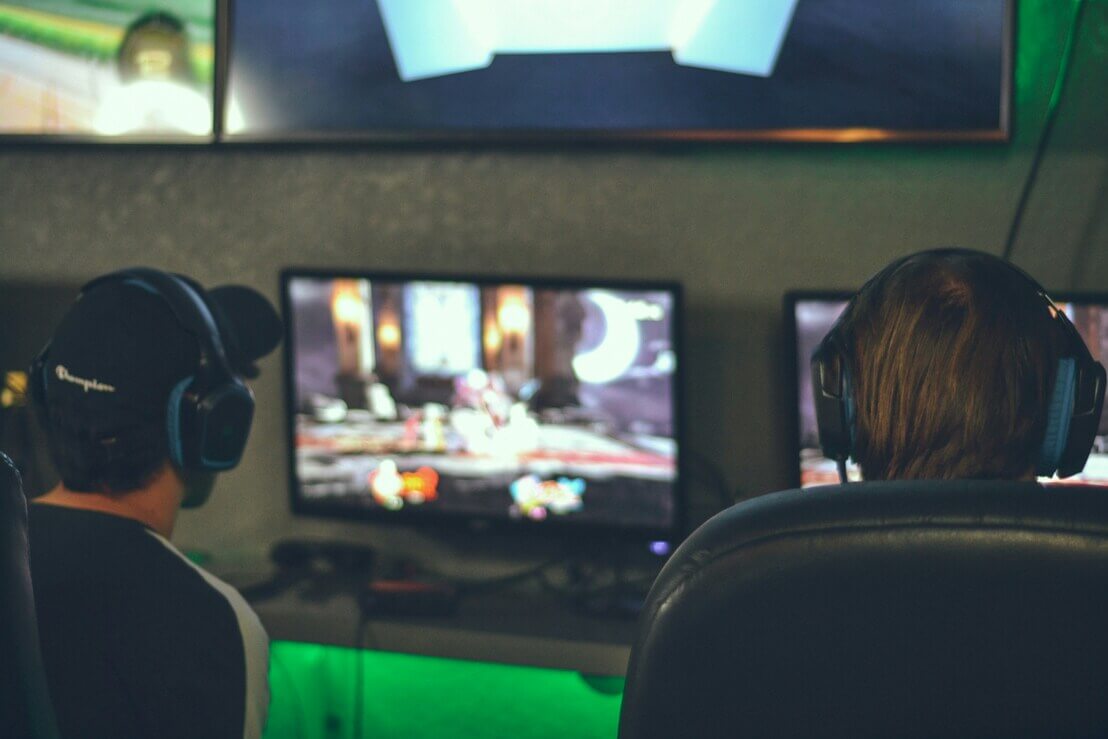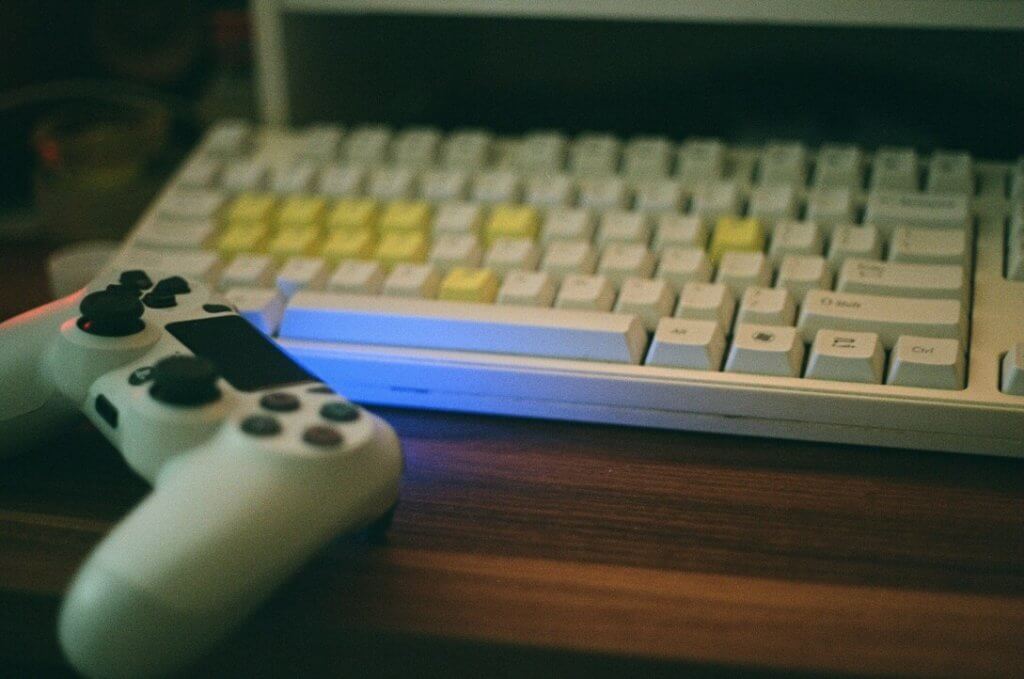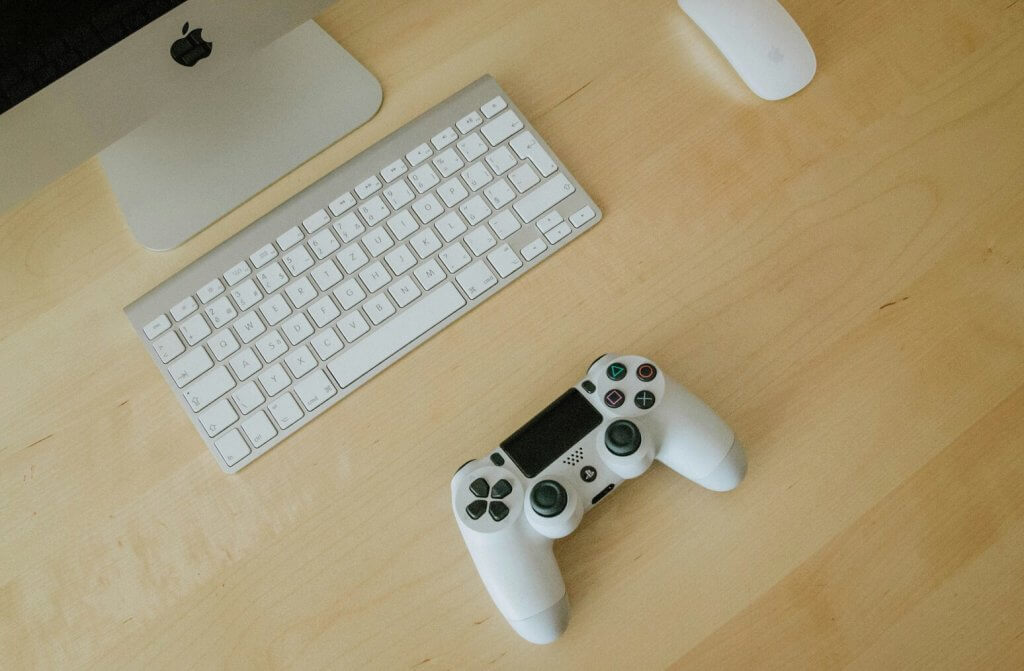The gaming sector can be highly competitive, with different opportunities and new platforms constantly opening up for anyone looking to launch a game design career.
From working in game development to creating immersive experiences as game designers, the gaming industry continues to grow with more games emerging all the time. This is exciting for both those playing games in competitive gaming and the developers behind gaming experiences. Online networks now mean that players can connect with a global audience while artificial intelligence technology is leading to new opportunities surrounding game development, enhancing competitive gaming strategies and tournament playing in professional gaming.
So how best to prepare to enter a sector like this, where the landscape is full of hotly contested roles? Of course, one of the most effective strategies during the early stages of a game design career is to study a SAE Gaming course. This will ensure you can offer companies the latest skills alongside a deeper understanding of how the industry is changing and moving forward.
A wide array of abilities as well as having the most recent tools in your armoury will help you plot your way through the sector to gain that all important competitive edge. In our blog, we explore some of the key trends shaping the future of gaming, the best ways to embed strategic foresight into your mindset and how to stand out from other developers.
Looking to take on a course with SAE? Get in contact with our team now.
What new technologies are expected to shape the future of gaming
Technology is at the heart of gaming and other creative industries within the digital world.
To be ready to secure the most exciting opportunities, it is important to have a knowledge of the ever-evolving sector as tech is changing all the time and creating unique challenges via new games. SAE’s gaming courses now includes our Game and Interactive Audio degree and is a fantastic way of equipping yourself with skills that are not only in high demand but also the knowledge to help you respond to this changing world.
From game mechanics to enhanced gameplay, there are some notable ongoing trends that will have a huge influence upon the future of the gaming business.
Mobile gaming
Mobile gaming has significantly changed since the days of Nokia’s Snake to now become a major part of the gaming market. According to GlobalData’s Thematic Research: Mobile Gaming 2024 report, the global mobile gaming industry will grow to $195bn (£150bn) in revenue by 2030, a significant increase from $124bn in 2023.
Virtual reality
Virtual reality (VR) has long been seen as an exciting growth area for game developers with headsets proving to be popular among fans of immersive gaming experiences. The 360 degree video game experience means gamers feel like they are inside the game itself, so they feel more engaged.
This technology segment is expected to be worth an estimated $207.8bn by 2030 by forecasters.
Cloud computing
Cloud services have democratised gaming, whether you are a hobbyist or a professional player in an esports team. Previously, gaming required access to expensive consoles, high-priced individual games, and sophisticated computers.
However, the arrival of cloud gaming has allowed people to stream games directly to almost any device with a screen, such as a phone or tablet. This has removed the need for pricier equipment and has had a huge impact on professional gamers looking to join a competition.
How to prepare and develop the technical skills for success
Your keys to success in the gaming industry can come from a range of strategies, activities and behaviours. Some of the most popular include:
Study a course
At SAE, we pride ourselves on offering industry-leading gaming courses taught by top industry practitioners through our faculty of lecturers and tutors. Alongside the latest technologies and programming languages, we also provide students with the chance to take advantage of our state-of-the-art studios and equipment to give them the best chance of success.
Contact our team to find out more
Hone a future-facing mindset
Technology by its very nature is driven by innovation and many video games differ between formats, player experience and they way they have been made. With this in mind, there is a demand for developers who are able to adapt to different work scenarios and be flexible with projects and work-loads.
The greater your expertise in cutting-edge technology, methodology, and strategic thinking, the better your understanding of how real world problem-solving can be applied in a game design career.
Technical expertise
Specific hard skills are essential depending on your potential role and studying a course will help you get to grips with the latest software and platforms.
Among the most essential are C# or C++ for programming and ZBrush/Maya for art alongside Steam Deck, PlayStation 5 and PCs with NVIDIA RTX graphics. A familiarity with popular game engines like Unity and Unreal is also highly valued.
Creativity and problem-solving
The industry demands constant innovation to stand out in a saturated market with more than 48,000 individuals employed in the UK gaming industry.
An aptitude for problem-solving and critical thinking is vital for overcoming the many challenges in game development and to stand out from other professionals vying for attention.
Collaborative skills
Game development is a collaborative process involving diverse teams (artists, programmers, designers, and more.). The size of a team will depend on the size of the company you work for – but an ability to clearly communicate complex ideas and an ability to work effectively with others are crucial for success at all levels.
Resilience and perseverance
Studying a degree at SAE can be the first step in your career and it’s important to remember that the road to a suitable role can be demanding. Many developers must grow a resilient mindset and see rejection as something to learn from rather than something to be dejected and held back by. By focusing on the positives and always looking to improve skills, you will equip yourself with the mindset to find success in your game design career.
Key roles in competitive gaming
There are different roles and opportunities available for gaming industry professionals. They include:
Game artists and animators
As a game artist, you will be an expert in the fundamentals of 2D and 3D design while having a solid foundation in industry software, including Unreal Engine, Maya, Substance and ZBrush. They will be skilled at bringing a gaming world to life through their depiction of characters, environments and much more.
Game programmers
A game programmer is a software engineer who creates code to make video games playable by translating design ideas. This includes assembling the platforms and game engines to create engaging and exciting gaming experiences.
Game designers
A game designer creates the rules, mechanics, and systems that make up a game, from initial concept to final version. Their responsibilities include developing gameplay ideas, creating storylines and characters, designing levels, and ensuring the player experience is fun.
How to source exciting opportunities
There are a series of strategies aspiring gaming industry professionals can follow to find exciting opportunities.
Define your skills: The industry offers diverse career paths, from game design and programming to marketing and quality assurance. It pays off to decide which specific role or niche aligns with your passion and skills, then trying to make it your own.
Build an engaging portfolio: Your portfolio is often more important than a formal degree, serving as tangible evidence of your abilities. From an intuitive format to including your best content, there are some essentials to focus on creating. Look to make it easily accessible online using platforms such as ArtStation or GitHub.
Create your own projects: Build small indie games or create updates for existing games. This not only enables you to gain vital hands-on experience but also showcase your skills.
Network effectively: Attend industry events and game development conferences to meet professionals and potential employers. You can also engage in online communities and discussion boards where developers interact to help find any suitable or exciting opportunities.
STUDY games at SAE
Whether you want to study Games Programming, Game Design or Game Art and Animation, our Gaming faculty has an array of courses to suit you and your ambitions.
Our state-of-the-art facilities and expert tutors are well placed to give your career the best possible start in exciting and creative sector.



































